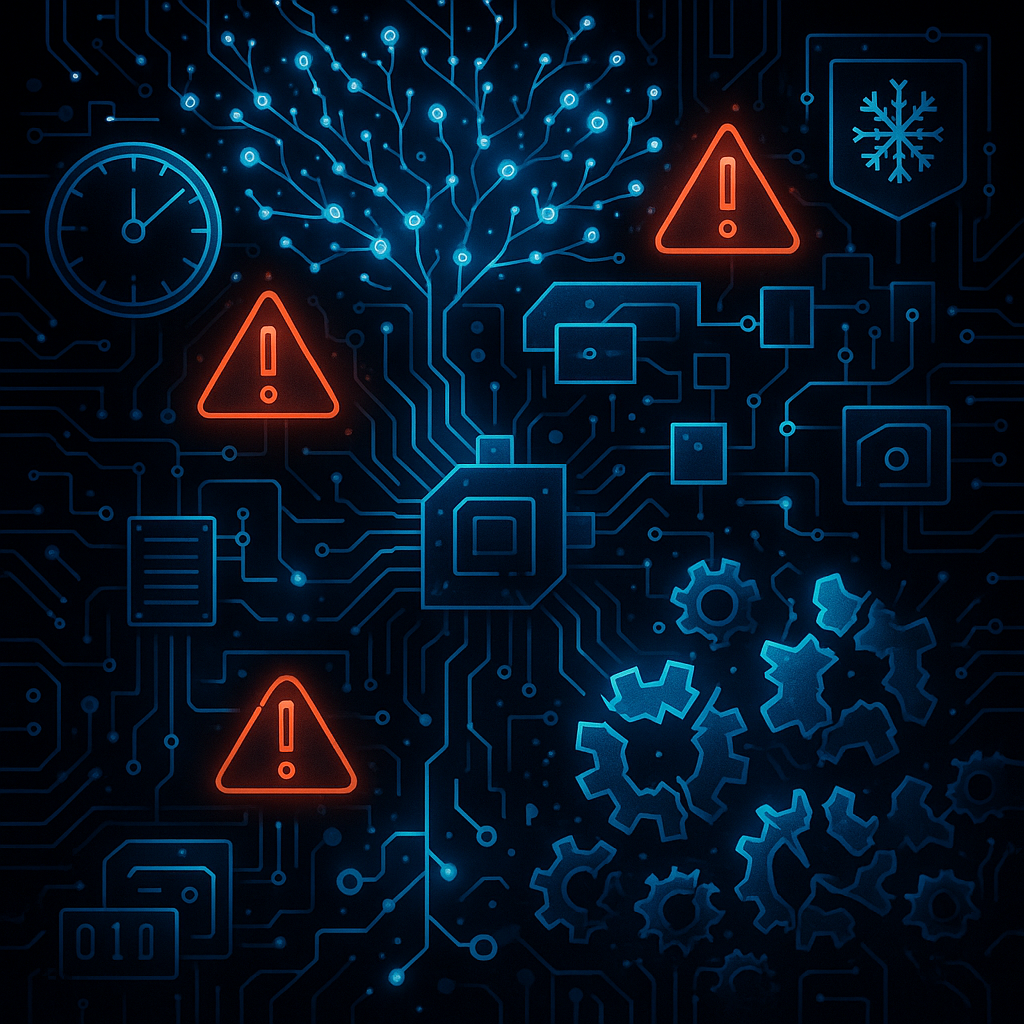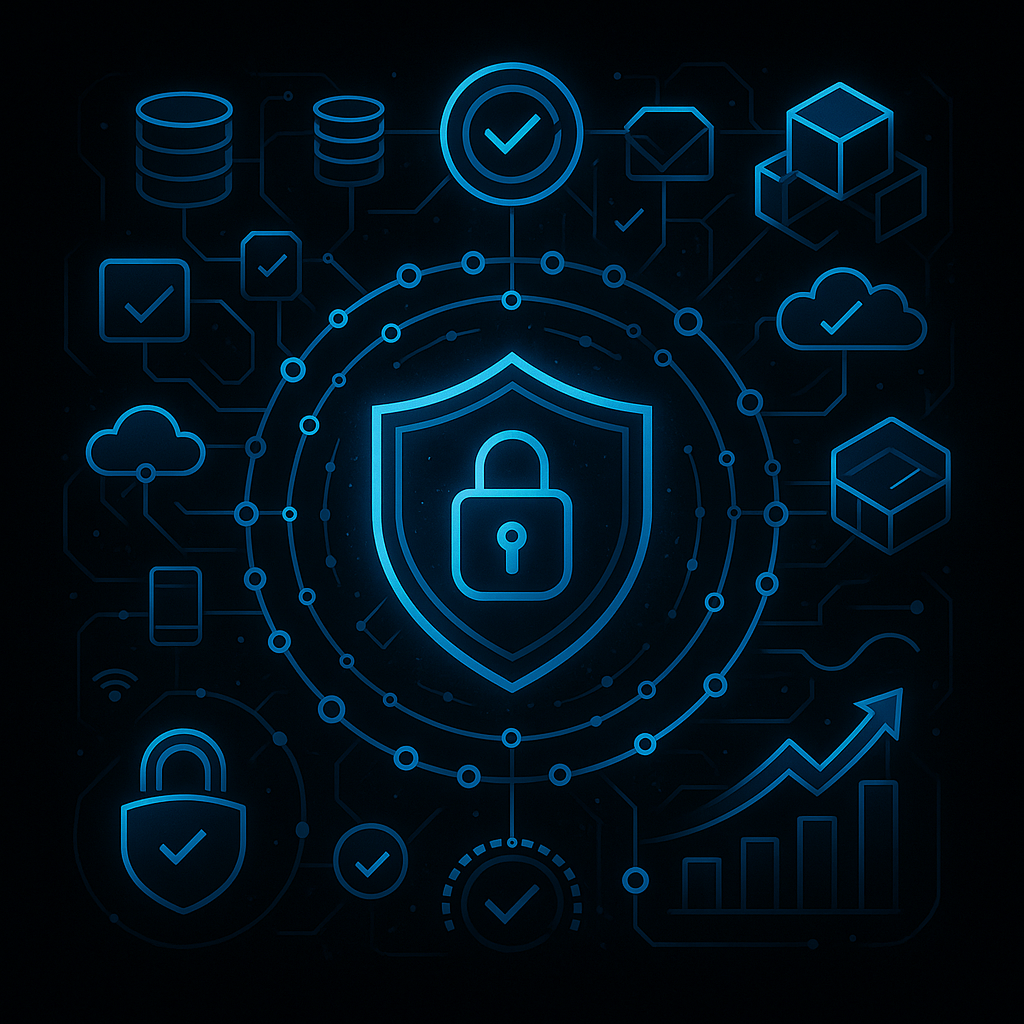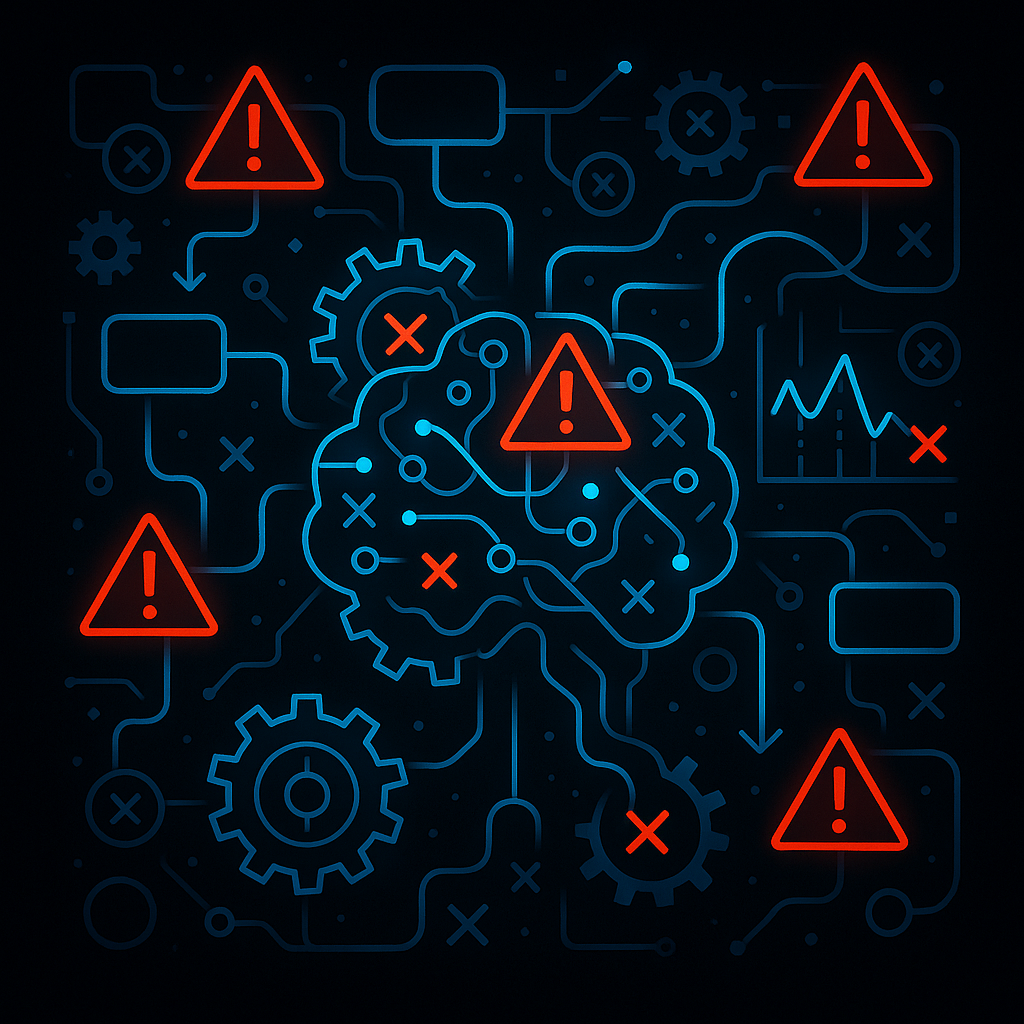- Patent Status:
- Operational
- Last Updated:
- March 8th 2025
Blockchain-Enabled Predictive Analytics & Data Integrity Across Multiple Application Domains
This patent introduces a decentralized predictive analytics framework integrating blockchain, federated learning, and quantum-resistant cryptography to enhance data integrity, security, and privacy across multiple application domains. The system leverages zero-knowledge proofs, homomorphic encryption, and Byzantine fault-tolerant consensus to facilitate secure model validation, privacy-preserving AI training, and adversarial threat mitigation. By decentralizing AI governance, this invention ensures tamper-resistant predictive insights, real-time federated learning updates, and quantum-safe cryptographic protections. It overcomes traditional centralized data vulnerabilities, adversarial corruption risks, and compliance challenges, enabling a trustless, verifiable, and scalable AI-driven predictive analytics ecosystem.
Technical Breakthroughs
The system’s efficiency depends on blockchain scalability, cryptographic overhead, and federated AI training performance.
Blockchain-Enabled Federated Learning
- Decentralized AI Training – Eliminates the need for centralized data aggregation.
- Zero-Knowledge Model Validation – Ensures model updates are verifiable without revealing sensitive data.
- Byzantine Fault-Tolerant Consensus – Prevents adversarial manipulation of AI model contributions.
Quantum-Resilient Data
Integrity
- Post-Quantum Encryption – Uses NTRU and RLWE cryptography to secure model updates.
- Quantum Key Distribution (QKD) – Enhances AI model security with tamper-proof encryption.
- Homomorphic Signature Verification – Ensures secure model authentication without exposing raw data.
Secure & Privacy-Preserving AI Workflows
- Encrypted Model Training – Homomorphic encryption enables learning on encrypted datasets.
- Secure Multi-Party Computation (MPC) – Enables privacy-preserving collaborative AI development.
- Adversarial Anomaly Detection – Identifies model poisoning attempts in federated learning environments.
The effectiveness of adversarial defense mechanisms depends on dataset quality, cryptographic implementation, and federated AI security policies.
Core Computational Advancements
The security of blockchain-integrated AI governance depends on cryptographic trust models, federated consensus participation, and adversarial robustness testing.
Blockchain-Anchored AI Governance
- Immutable Model Audit Logs – Provides tamper-proof model update tracking.
- Verifiable Smart Contracts – Automates AI governance through blockchain-based policies.
- Federated AI Trust Score – Assigns credibility ratings to decentralized model contributors.
Probabilistic Mutation Impact Forecasting
- Optimized Consensus Mechanisms – Hybrid PoS and dBFT reduce blockchain transaction overhead.
- Hierarchical Ledger Storage – Enhances AI model scalability while maintaining cryptographic auditability.
- Cross-Chain AI Model Validation – Enables interoperability between different blockchain networks.
Adaptive Epigenetic Sequence Reconfiguration
- Gradient Poisoning Detection – Uses anomaly detection to flag adversarial updates.
- Zero-Knowledge Fairness Audits – Verifies bias mitigation without exposing model logic.
- Quantum-Secure Model Attribution – Cryptographic watermarks trace AI contributions without compromising privacy.
Computational Efficiency & Performance Impact

Current Challenges in Predictive Analytics
- Centralized AI Systems Lack Transparency – Traditional models are vulnerable to data tampering.
- Federated Learning Faces Adversarial Risks – Existing systems struggle with model poisoning defenses.
- Blockchain-AI Integration Bottlenecks – Conventional blockchain implementations are computationally inefficient.
Innovations in Computational Efficiency
- Hierarchical Blockchain Ledger Storage – Reduces redundant AI transaction processing.
- Quantum-Secure Federated Aggregation – Prevents model inversion attacks and adversarial interference.
- Zero-Knowledge Model Verification – Ensures computational efficiency while preserving AI confidentiality.


AI-Powered Predictive Performance Enhancements
- Adversarial Gradient Resilience – Identifies and filters out malicious AI contributions.
- Scalable AI Model Auditing – Verifiable AI fairness without compromising proprietary data.
- Self-Optimizing AI Inference – Uses decentralized feedback loops to enhance predictive accuracy.
Regulatory & Security Compliance
 Blockchain-Governed AI Compliance Framework
Blockchain-Governed AI Compliance Framework
- Automated audit trails ensure compliance verification.
- Regulatory AI fairness guarantees through cryptographic attestations.
- Legally-compliant federated learning model validation.
 Privacy-Enhanced Federated AI Security
Privacy-Enhanced Federated AI Security
- Zero-knowledge proofs enforce encrypted compliance tracking.
- AI fairness audits prevent discriminatory model behavior.
- Privacy-preserving multi-party computation ensures regulatory alignment.
AI compliance relies on jurisdictional regulatory interpretations, cross-border federated learning policies, and cryptographic audit standards.
Deployment & Implementation Feasibility
AI-Integrated Blockchain Security Infrastructure
- Ensures seamless AI model deployment across decentralized networks.
- Reduces blockchain congestion using optimized cryptographic transactions.
- Supports federated AI deployment in high-compliance industries.
Cross-Domain Federated AI Training & Validation
- Utilizes AI-powered cryptographic attestations for inter-domain collaboration.
- Enables trustless AI interoperability between organizations.
- Applies Byzantine fault tolerance for AI trust modeling.
Quantum-Resistant AI Data Integrity Solutions
- Combines post-quantum cryptography with real-time AI verifications.
- Eliminates adversarial model corruption through zk-SNARK verification layers..
- Optimized for privacy-preserving AI training in high-risk environments.
Licensing & Collaboration Pathways
Licensing models vary based on deployment complexity, compliance needs, and computational infrastructure.
Blockchain-Integrated Predictive Analytics Licensing
- Enterprises can integrate blockchain-verified AI for secure analytics.
- Supports scalable, regulatory-compliant federated AI deployment.
- Enhances AI security through cryptographic model validation.
Federated AI Model Deployment
- Organizations can leverage homomorphic encryption for AI security.
- Decentralized AI collaboration without direct data exposure.
- Cross-industry integration for AI-powered predictive modeling.
Cross-Sector Research & AI Innovation
- Supports quantum-resistant cryptographic AI model verification.
- Encourages privacy-preserving AI R&D collaboration.
- Facilitates blockchain-secured AI model commercialization.
Enterprise Readiness & IT Integration
- Implements zero-knowledge proofs for trustless model updates.
- Utilizes secure enclave computing for encrypted model processing.
- Optimized for regulatory-compliant AI governance across sectors.
- Supports federated AI learning without direct data transfer.
- Leverages homomorphic encryption for encrypted collaboration.
- Adopts secure multiparty computation for inter-organizational data privacy.
- Combines lattice-based encryption with quantum-resistant key management.
- Uses Byzantine fault-tolerant consensus to ensure trusted AI model aggregation.
- Enhances AI model explainability through cryptographic verifiability techniques.
Get Started – AI Efficiency with
Proven Performance
Accelerate AI workloads with rigorously tested Quantum-Inspired Neuromorphic AI.

United States
Strategemist Corporation
16192 Coastal Highway Lewes, Delaware 19958
United Kingdom
Strategemist Limited
71-75 Shelton Street,Covent Garden, London, WC2H 9JQ
India
Strategemist Global Private Limited
Cyber Towers 1st Floor, Q3-A2, Hitech City Rd, Madhapur, Telangana 500081, India
KSA
Strategemist - EIITC
Building No. 44, Ibn Katheer St, King Abdul Aziz, Unit A11, Riyadh 13334, Saudi Arabia